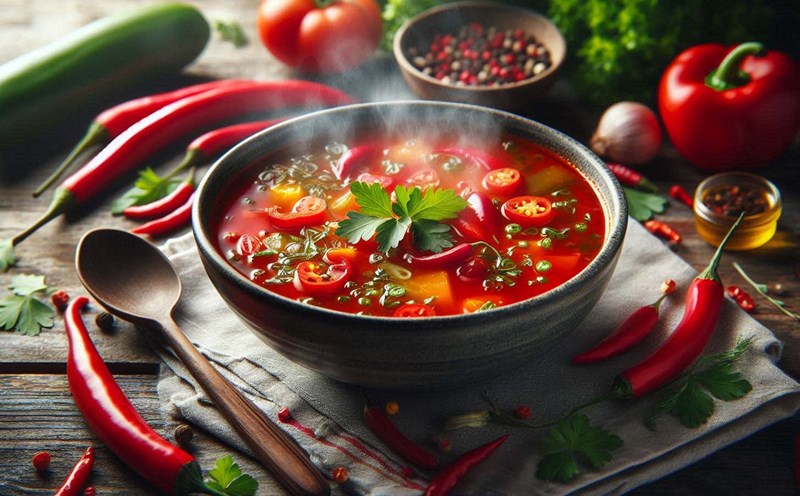Sometimes, you suddenly want to eat a plate of spicy noodles or a piece of fried chicken with chili. According to experts, this craving is not only a temporary feeling but can also be related to many factors from the environment to hormones.
Environmental signals
Images, scents or advertisements about favorite dishes can activate the brain's reward zone, creating a pleasant feeling and urging immediate eating.
Ms. Shailja Mathur, Master, Doctor of Medicine, RDN, assistant professor at Rutgers University (USA), explained: "Sometimes you just need to look at an advertisement or walk past a familiar store, the scent can immediately arouse your appetite".
Research shows that people who love spicy foods react more strongly when exposed to spicy signals, such as increasing heart rate and saliva secretion, even eating more later.
Hot weather
Capsaicin, the spicy flavor compound in chili, activates the heat-feeling receptors in the body, making you sweat, thereby creating a cooler feeling.
Ms. Diana Guevara, MPH, RD, a nutritionist at the UTHealth School of Public Health (USA), said: "Capsaicin slightly increases body temperature, then stimulates sweating, helping to cool down".
Stress
Stress often causes people to look for food to create a feeling of relaxation. For some, spicy foods associated with happy memories should become a "comfortable dish".
Guevara further explained: If spicy food is something you regularly enjoy and attach to positive memories, you will tend to look for it when stressed.
In addition, the spicy taste causes mild pain, stimulating the body to secrete endorphins and dopamine, two neurotransmitters associated with feelings of excitement.
Hormonal changes
Hormonal fluctuations during menstruation, pregnancy or menopause can change your appetite. A 2016 study showed that 3.3% of pregnant women craved spicy foods such as chili and curry. Guevara says that reducing taste buds in some women during pregnancy or old age can help them find a stronger flavor.
Spicy, beneficial and harmful foods
According to Mathur, spicy foods contain anti-inflammatory, antioxidant compounds, which are associated with longevity and eating more slowly, helping to control food intake. She suggested combining nutrition and spicy taste with dishes such as tofu with sriracha sauce or hummus with paprika.
However, Judy D. Simon, MS, RD, CD, a clinical nutritionist at the University of Washington Medical Center (USA), warned: " Spicy foods can irritate the mouth, esophagus, cause indigestion and affect sleep, especially in people with reflux".
There is currently no strong evidence that cravings for spicy foods are directly linked to nutritional deficiencies, but experts recommend listening to the body, choosing spicy foods rich in nutrients and limiting them if they cause digestive discomfort.











